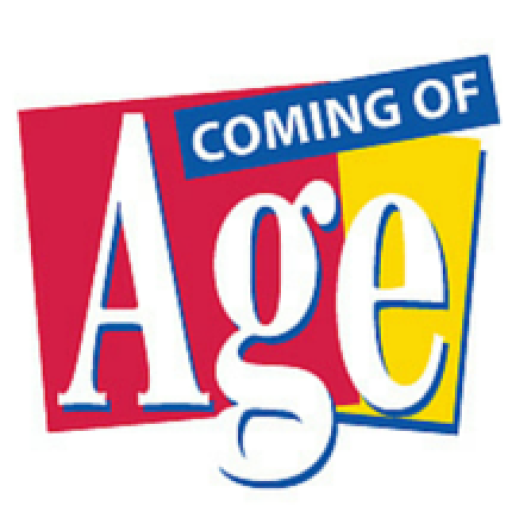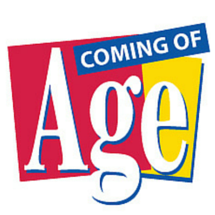This is a great blog post by Carol Orsborn, Ph.D. on Still Here: Embracing Aging, Changing, and Dying by Ram Dass. You can view the full post here and other content by Carol Orsborn at her website carolorsborn.com.
STILL HERE

Ah, the privilege of living larger than life—something I’ve longed to experience through my achievements, by doing. With a longing this big, I can feel as if I could conquer the world—it feels endless, infinite. And yet, how ironic, I sometimes write just one paragraph and feel worn out.
Right after the winter holidays, I got just the right kind of cold, just bad enough that I had to cancel my appointments and hang around the house in my jammies, reading, listening to music, staring out the window at the river. I was pleasantly surprised how little I needed to fill my days, how whole I could feel simply existing in my own skin. I stretched this thing out a full three weeks before realizing that if I didn’t get back to the gym, I’d lose my ability to walk up stairs. Before long, I was back in the fray, saying yes to too many things while having unsettled dreams about cars overheating.
Thank God that during my illbattical, I re-read one of my favorite books, Ram Dass: Still Here: Embracing Aging, Changing, and Dying. Somewhere in my subsconscious, his wise words and life experience were percolating, waiting for just the right moment to save me from my own exuberance. Early in the book (p. 43), he relates a tale—quintessentially human—of being invited to speak before an audience of thousands in Denver. Rather than walk up the steps to the stage, as appropriate for a 63-year-old, he decided to show off by leaping straight to the podium. Only thing is, he miscalculated his strength and trajectory, and took an embarrassing and painful fall. Even then he didn’t want to lose face, so gave his speech with blood dripping down his leg. In retrospect, he wishes he had had the humility to “act his age” and then to excuse himself for the brief time it would have taken to tend to his wound properly.
Ram Dass learned valuable life lessons from this embarrassing episode—adding to the bank of his spiritual resources he would have to draw upon when in 1997, just three years later, he suffered a near-fatal stroke. The stroke left him paralyzed on the right side of his body and with expressive aphasia limiting his ability to speak, along with other challenging ailments. According to his bio: “The after effects of the stroke have once again changed his life and vastly altered his day, but he has been able to resume teaching and continues to share and teach.”
Throughout the course of Still Here, Ram Dass points the way to making peace with the losses associated with aging, our unexpected challenges—and especially with our arrogance. He writes that before the stroke, he had been “prone to overestimating (my) powers. Or perhaps, I was simply more arrogant. In any case, it is fascinating now to discover that the embarrassment I felt over getting older has nearly disappeared with my physical disability. Back then, I was worried about not looking fit. Since the stroke I have been wheelchair-bound…This was much harder to take at the beginning. It gets easier as the Ego lets go of its concerns.” (p. 44.)
Ram Dass’ stroke forced him to face his worst fears. But while there were painful losses, there were also unexpected gifts. The greatest blessing was the wearing away of the effects of his Ego—the attachment to how others perceived him, to expectations about what kind of life he deserved, even to what we had thought was the meaning of life, itself. As Ram Dass describes it: “Behind the machinations of our brilliant, undependable minds is an essence that is not conditional, a being that aging does not alter, to which nothing can be added, from which nothing is taken away…This is not an abstract concept; it is as real as the breath moving in and out of your body, and real as the spirit that animates you. The greater your mindfulness, the more you will come to know this truth, and to rest in it when painful thoughts threaten to hide it from view.” (p. 49.)
This book is full of practical advice and spiritual wisdom to help us face our worst fears about aging, and holds our hands should we have to transit through the darkest passages, as did Ram Dass, ourselves. But even if it’s just a cold that’s got you in its grips, or in my case, recovery from that same cold and subsequent miscalculation of my energies, we are reminded by Ram Dass’ story about what matters most.
After refreshing myself with Ram Dass’s words, I took out my calendar and crossed off half the entries. I am determined to use the deficiencies of my energy as a vehicle that will take me back to where the love is not conditional nor exhaustible—back to where I can simply be. This is a newfound ability, a gift of age: detaching from the fray of life, and my own ambition, to descend—or is it elevate?—into a life that interacts with the world at a life-giving and age-appropriate pace, while rooted in the soul’s natural habitat–love of solitude. In this place of being, I grow deep and I grow whole. After years of having to channel the essence of my vitality to make a living, play a part in the world, my spirit has, at last, found sanctuary. Like Ram Dass, I am grateful to have shed so many layers to discover that I may not be who I used to be, but I, too, am Still Here.

